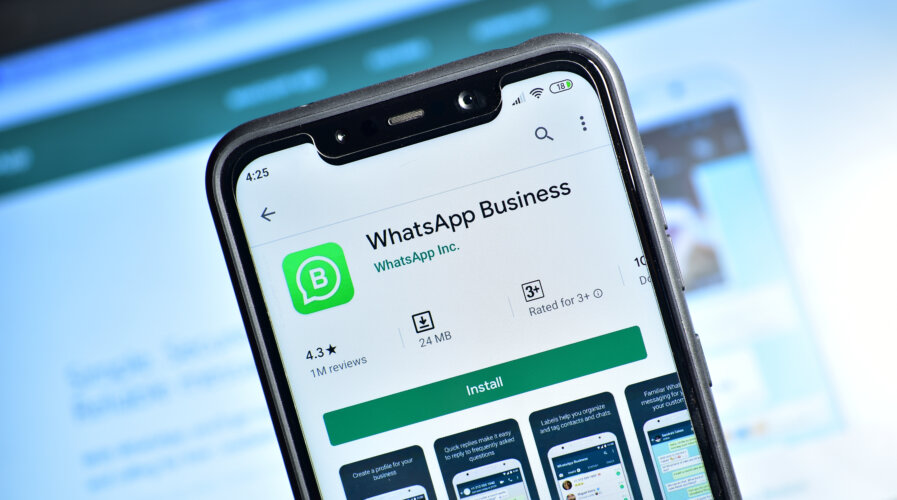
WhatsApp has officially enabled businesses to send authentication and login codes through its API to users in India. This new feature, launched on July 1, represents a significant step in WhatsApp’s ongoing efforts to enhance its platform for business use.
Meta, the parent company of WhatsApp, first introduced this functionality for merchants in various regions last year. Following its initial success, Meta expanded these services to Malaysia in June and subsequently to India in July.
Last month, WhatsApp began implementing an international authentication rate for activities such as sending login codes to cross-border users. This new pricing strategy aims to streamline the process of international authentication and make it more efficient for businesses operating globally.
Meta spokesperson shared insights about this development during the ‘Conversations’ event last month. “As we mentioned onstage at ‘Conversations’ last month, we want to give people and businesses the ability to get more things done right on WhatsApp — and that includes one-time passwords so people can get a login code and quickly sign in,” the spokesperson said.
“Giving people and businesses simple ways to verify accounts on their app of choice will continue making WhatsApp the best place for business to get done.”
India is a crucial market for WhatsApp, with over 500 million users making it the largest market for the messaging platform. The activation of authentication services in India is a major development, given the country’s high volume of one-time passwords (OTPs) sent daily by telecom networks. Estimates suggest that over 1 billion OTPs are sent every day in India. By enabling authentication messages on WhatsApp, the platform has the opportunity to capture a significant portion of this traffic and charge businesses for the service.
WhatsApp has been restructuring its messaging fees for businesses since last year. The introduction of authentication messages provides a new avenue for WhatsApp to increase its revenue. Additionally, this move aims to encourage users to engage with the app more frequently. Last month, WhatsApp also announced several AI-powered features designed to assist merchants with customer support and create ads on the WhatsApp Business app.
- Launch Date: Authentication and login codes via WhatsApp API enabled in India on July 1.
- Previous Launches: Introduced to Malaysia in June, following initial launches in other regions last year.
- Market Size: India has over 500 million WhatsApp users, making it the largest market.
- OTP Volume: Over 1 billion one-time passwords sent daily in India.
Benefits for Businesses and Users
Businesses stand to gain significantly from WhatsApp’s new feature. Here are some of the primary benefits:
- Streamlined Authentication: Simplifies the process of sending login codes and one-time passwords, making user verification more efficient.
- Cost-Effective Solution: By utilizing WhatsApp’s API, businesses can potentially reduce costs associated with sending OTPs through traditional SMS services.
- Enhanced User Experience: Users can receive OTPs directly in WhatsApp, an app they frequently use, providing a more seamless and familiar experience.
- Increased Security: WhatsApp’s end-to-end encryption ensures that authentication messages are secure and less susceptible to interception compared to traditional SMS.
Impact on the Market
The introduction of authentication services on WhatsApp is poised to have a significant impact on the market. Here are some of the key areas of influence:
- Telecom Industry: With a substantial portion of OTPs potentially shifting from traditional SMS to WhatsApp, telecom companies might see a reduction in their OTP-related revenues.
- Business Operations: Companies operating in India can leverage WhatsApp’s authentication services to streamline their user verification processes, potentially leading to faster onboarding and improved customer satisfaction.
- Consumer Behavior: As more users become accustomed to receiving authentication messages on WhatsApp, the app’s role in everyday activities could become even more integral, driving higher engagement and usage rates.
| Date | Event | Region |
|---|---|---|
| Last Year | Initial launch of authentication services | Various regions |
| June | Expansion to Malaysia | Malaysia |
| July 1 | Launch in India | India |
WhatsApp’s move to include authentication and login codes is part of a broader strategy to innovate and expand its business offerings. Recently, the company has introduced several AI-powered features aimed at enhancing the functionality of the WhatsApp Business app. These features include tools for designing ads and providing customer support, further solidifying WhatsApp’s position as a versatile platform for businesses.
What This Means for Businesses
For businesses, the ability to send authentication and login codes through WhatsApp presents several opportunities. Here are some of the potential advantages:
- Direct Communication: Businesses can communicate directly with their customers through a trusted platform, ensuring that important messages are seen and acted upon quickly.
- Brand Visibility: By interacting with customers on WhatsApp, businesses can increase their brand presence on a platform that users frequently engage with.
- Operational Efficiency: Integrating authentication services into WhatsApp can streamline operations, reduce friction in user onboarding, and enhance overall efficiency.
WhatsApp’s introduction of authentication and login codes for businesses in India marks a significant development in the platform’s evolution. By leveraging its extensive user base and secure messaging capabilities, WhatsApp is well-positioned to become a key player in the realm of business communication and user authentication. As businesses and users adapt to this new functionality, the impact of this development is likely to be profound, driving increased engagement and new revenue streams for WhatsApp.
Featured Image courtesy of Tech Wire Asia
